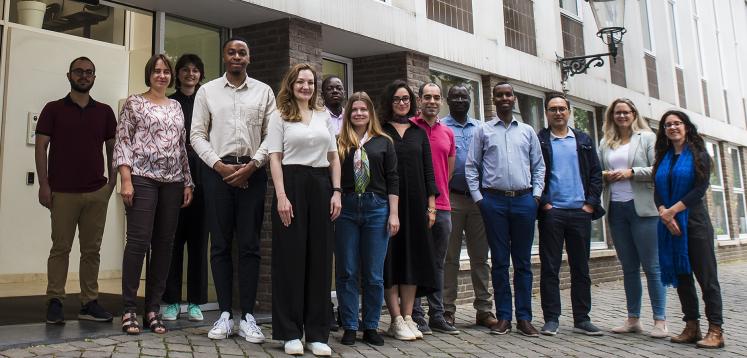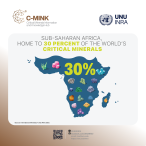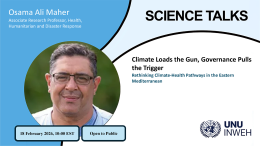In March this year, the 2022 cohort of UNU-MERIT’s dual career (DC) PhD fellows celebrated the second anniversary of the start of their PhDs. Two weeks ago, over dinner in a noodle restaurant near Maastricht’s Jekerkwartier, Adam Adou, Rodrigo López Barreda, Karin Schmidt Martinez, Giovanna Mazzeo Ortolani, Abdinassir Sagar and I came together to mark the occasion and to look back on our journeys so far.
March and September are the two moments in the year when DC fellows travel from their various countries to spend some days at UNU-MERIT in person (for Research Week and UNU-MERIT's Internal Conference). However, our motivations to make this biannual trip are about much more than simply meeting the requirements of the programme.
“Every time we’re here, I feel part of a community,” Karin shared during our recent group conversation over dinner. “This is when I meet my other family in Maastricht,” Adam added. Doing a PhD can be a lonely job at times; a part-time PhD can be even lonelier. March and September are the moments when we can really feel a sense of togetherness and camaraderie.
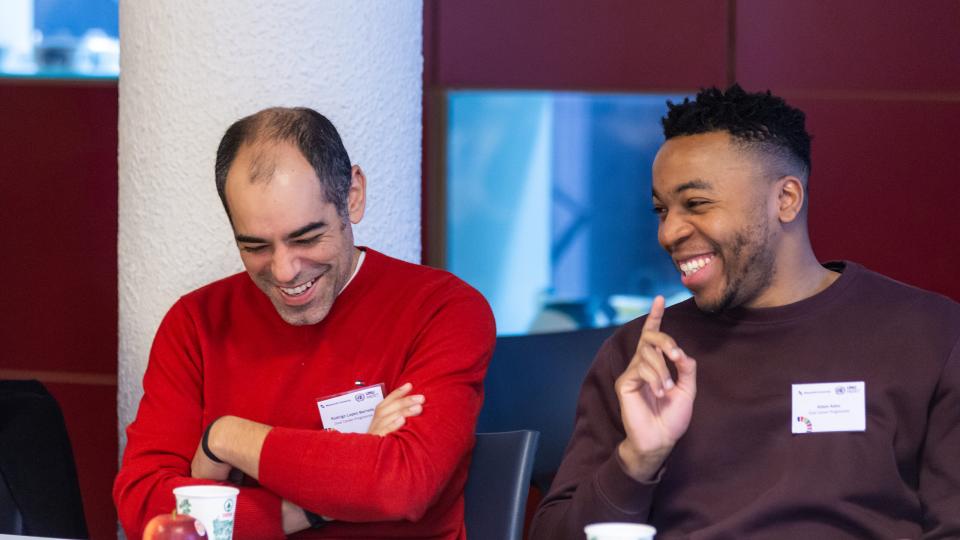
Rodrigo López Barreda (left) and Adam Adou (right) sharing a joke during Research Week 2024.
Photo: Herman Pijpers.
The first year
Our PhD journeys started in March 2022 when we were admitted under the programme’s previous name of ‘dual career PhD programme in Governance and Policy Analysis’ (GPAC2) fellows. Our first workshop was conducted online, since UNU-MERIT, like many parts of the world, was still navigating the end of the pandemic.
Fortunately, our second workshop (in June 2022) could be held on-site. For the first time, most of the group met each other in person. “I was so surprised to see how tall Adam was!” Rodrigo remembered the moment he first saw his cohort mate outside of an online setting.
Our group still had vivid memories of their first-year workshops. “It was brutal,” I laughed while reminiscing with the others. “I thought I had the most brilliant research question, but all the instructor asked was, ‘Why is that even interesting?”
Reviewers’ comments on my proposal were also critical, and the other fellows shared the same sentiment, but we all agreed that the skills we acquired in the first-year workshops provided a solid basis for our PhD dissertations. “It was what we needed, considering our backgrounds,” noted Giovanna.
Eleven of us started the journey as GPAC2 fellows. Towards the end of our first year, the PhD programme was reorganized (the full-time and DC PhD programmes were merged into one administration). In the end, unfortunately, the other five from our cohort didn’t make it into the second year. “The six of us are survivors!” Karin laughed. ‘GPAC2 Survivors’ is the name of our WhatsApp group that our cohort uses to communicate regularly – so named not only because we are the remaining members of the original group, but because our cohort was the last to be admitted as GPAC2 fellows, and the last one experiencing first-year workshops conducted online.
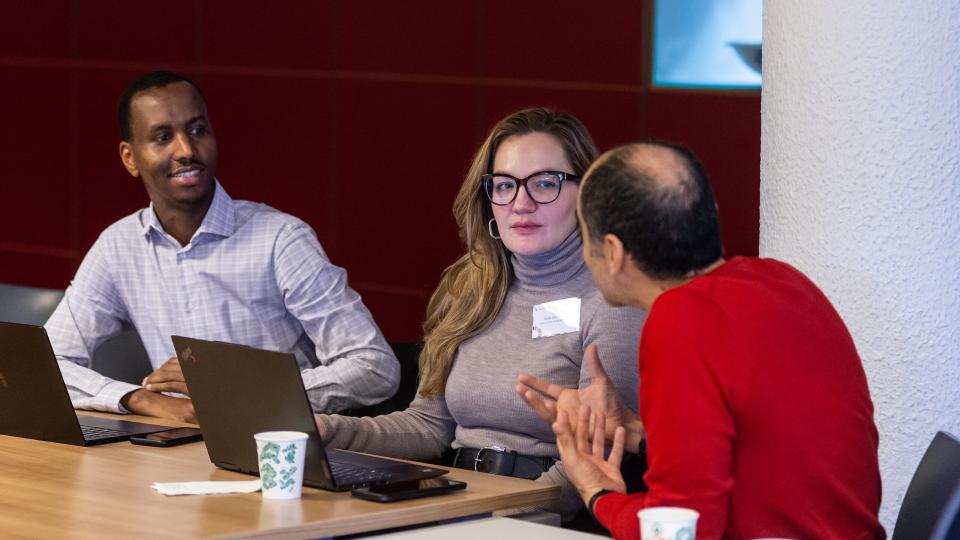
Dual career in reality
For DC fellows, time is both their friend and enemy. It can already be challenging enough to maintain a good work-life balance, so getting the work-life-study balance right certainly requires excellent time management skills. The six of us have different ways of managing our workloads. Karin, for example, prefers to focus on one task at a time: regularly blocking an entire day or two to work only on her PhD papers before switching to other tasks. Others allocate some time for their PhD research every evening and on weekends around their leisure or home activities.
Family – for those who have one – is another factor to account for. Parents need to make sure that they still spend quality time with their significant others and children. “My weekends are for my family,” Abdinassir, father of five, told us. How he juggles his life is almost worth a PhD study in itself! But he shared part of his secret with our group: “Teamwork with my wife is the key!” As the other father in the group, I have a teenage daughter who is almost finishing high school. She doesn’t need me as much as she used to, but if she has weekend soccer matches, my PhD work must give way.
On the other hand, coming to a PhD journey with some work experience gives DC fellows some advantages. “Our empirical work experience gives us a different perspective in how we look at our academic research,” Giovanna reflected. Karin agreed with her and added, “With such perspectives, we can enrich the academic debate. In a way, we have the best of both (academic and professional) worlds.”
We also discussed that being older brings certain positive traits. For example, I know that I am better now at communication, dealing with sharp comments, and handling job stress compared to 10-15 years ago. Abdinassir shared my view, and stated that applying those skills to his PhD work has been very useful. Both of us admitted that having a stable career and being financially secure has helped us in pursuing our interests and focusing on the substantive element of the PhD.
Motivations
We then talked about our reasons for choosing this path; Giovanna’s opinion was that a PhD gives her greater opportunities to advance her professional career: “The job market in Europe values a PhD degree, especially if you work with bridging evidence to policy-making”. Adam added that doing a part-time PhD means he doesn’t have to lose several years in the labor market, which could have affected his career. Meanwhile, Abdinassir sees having a PhD as a way to enable him to advance his career, since he plans to apply for a research-related position within the UN. For others, the labor market benefit is less clear; for example, Karin doesn’t feel that having a PhD necessarily translates into a higher salary. I agreed with this, since my job (and any promotion in my line of work) doesn’t require a PhD, unless I would want to move to the research department.
Rodrigo pointed out that in some professions, such as the humanitarian sector, having a PhD could even be seen as negative. He explained that certain people who spend their lives in the field might have stigma around spending so many years studying, perhaps with the idea that PhD fellows ‘only write papers’ and don’t take any tangible actions to improve the world.
Then what motivates DC fellows to take this path? “Our thirst for knowledge, passion for research, and self-actualization,” shared Rodrigo, representing the group’s view. It’s true that wanting to do a PhD is just the start – one must also have the determination to complete the process, which requires strong intrinsic motivation.
There’s also the fact that a PhD enhances a person’s authority as a subject matter expert – or simply the fact that we’d like to have the highest academic title in our names! “In the end, I just want to be called ‘Doctor’…” Karin laughs when revealing her true intention. “Or ticking the ‘Dr.’ box when filling forms,” I joked.
Whatever our motivation for doing a PhD is, be it intrinsic, pragmatic, or both, we are all grateful that UNU-MERIT offers us a pathway to achieve this goal.

The 2022 DC cohort group; from left to right: Rodrigo, Ari, Giovanna, Karin, Abdinassir and Adam outside the Oodles of Noodles restaurant in Maastricht, where they celebrated the two year anniversary of their PhD journeys.
Photo: Ari Perdana
After dinner, on a chilly Maastricht evening in March, the six of us parted ways. Abdinassir had to catch the last train to Amsterdam, and would then fly across the Pacific to New York the next morning. The next day I flew more than 10,000 km to Manila and Rodrigo plane-hopped to Rwanda, while Adam, Giovanna and Karin stayed in Europe. In September, we will reunite. In the meantime, there’s always our ‘GPAC2 Survivor’ WhatsApp group to help us stay connected, and our memories of time spent together in Maastricht.


